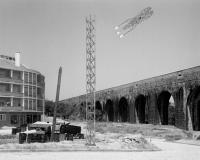gulbenkian
Articles tagged with gulbenkian
Tag Archive
- (Re)Imagining African Independence
- África
- africa. portugal
- Agricultura
- Alex kahl
- Alternative
- anti-semitism
- Bandjoun Station
- bell hooks
- blackness
- buenos aires
- chineses
- colonial memory
- creolo
- crio
- cultural memory
- Dak'art 2016
- dance show
- decolonial
- democracia racial
- descobrimentos
- design
- Deus Dará
- deverbatives
- diálogo
- drawings
- Empire
- escrita
- Exhibition-Fair Angola 1938
- Fernando Anuang´a
- Fernando Medina
- Fernando Pessoa
- Fiction
- fragment
- França
- Franco
- Franz Fanon
- geração 80
- Globalization
- Ícaro Lira
- Ilha de Santiago
- Jean-Michel Basquiat
- João de Deus Lopes da Silva
- Jogos Sem Fronteiras
- justiça social
- korubo
- Lula
- Lunda
- luso-tropicologia
- Lusosphere
- lyubov matyunina
- mar
- midterms
- moçambique
- Monuments in Reverse
- movie theaters
- Munique
- musica africana
- música angolana
- músicas do mundo
- our lady of the chinese shop
- palestina
- pánu di téra ; Cape Verde; textiles; fashion design; globalization; identity
- Periferia
- plateau
- política
- pop culture
- portland
- production
- public space
- racismo estrutural
- racist system
- Regina Guimarães
- René Tavares
- resistência
- return
- rock art
- Samir Amin
- Sao Tomé e Príncipe
- Sao Tomé et Príncipe
- Slavery
- sorcery
- suburb
- super mama djombo
- tailors
- tanzania
- tchiloli
- Tchitundo-hulo
- teatro
- Teatro Griot
- thread
- transmission
- travel
- tunisia
- Ursula K. Le Guin
- utopia
- Visual Cultura
- Visual Cultural
- “(Re)membering
- “Sexual Misconduct in Academia”
 This exhibition presents around 60 works by 21 artists whose family origins lie in the former colonies in Africa. Born and raised in a post-colonial context, they are artists whose works have become unavoidable in European contemporary art, proposing a reflection on their heritage, their memories and their identities.
This exhibition presents around 60 works by 21 artists whose family origins lie in the former colonies in Africa. Born and raised in a post-colonial context, they are artists whose works have become unavoidable in European contemporary art, proposing a reflection on their heritage, their memories and their identities.  Europe is said to be currently facing the biggest refugee crisis since the Second World War. In the media, images of people escaping from their home countries devastated by war and misery and arriving to Europe are recurrent. As these pictures spread and instigate different reactions – some of them highly racist and xenophobic – another picture came to my mind: a picture of Lisbon in 1975 by Alfredo Cunha, shortly after the arrival of 6000 people from the Portuguese ex-colonies of Angola, Mozambique, Guinea-Bissau, São Tomé and Príncipe and Cape Verde.
in"Decolonizing Museums", L'Internacionale.
Europe is said to be currently facing the biggest refugee crisis since the Second World War. In the media, images of people escaping from their home countries devastated by war and misery and arriving to Europe are recurrent. As these pictures spread and instigate different reactions – some of them highly racist and xenophobic – another picture came to my mind: a picture of Lisbon in 1975 by Alfredo Cunha, shortly after the arrival of 6000 people from the Portuguese ex-colonies of Angola, Mozambique, Guinea-Bissau, São Tomé and Príncipe and Cape Verde.
in"Decolonizing Museums", L'Internacionale.  The text focuses on three operations – OPENING, REMOVAL and RESTITUTION - having Ana Hatherly’s work "As Ruas de Lisboa", Isabel Brison and Nuno Rodrigues de Sousa’s "O Monumento da Rotunda das Águas Livres", and Ana Bigotte Vieira’s "No Aleph – Notes about a research on Calouste Gulbenkian Foundation ACARTE Service (1984-1989)" as main sources. It is important to note that this text is being written in 2015, at a time when the brutal presence of a succession of absences in Portuguese recent history is felt more than ever. In fact, the current austerity policies point to the removal of a series of I would call ‘openings’ directly related to the Revolution on 25 April 1974 that overthrew António de Oliveira Salazar and Marcelo Caetano’s forty-eight year dictatorship and ended thirteen years of colonial wars. in"Decolonizing Museums", L'Internacionale
The text focuses on three operations – OPENING, REMOVAL and RESTITUTION - having Ana Hatherly’s work "As Ruas de Lisboa", Isabel Brison and Nuno Rodrigues de Sousa’s "O Monumento da Rotunda das Águas Livres", and Ana Bigotte Vieira’s "No Aleph – Notes about a research on Calouste Gulbenkian Foundation ACARTE Service (1984-1989)" as main sources. It is important to note that this text is being written in 2015, at a time when the brutal presence of a succession of absences in Portuguese recent history is felt more than ever. In fact, the current austerity policies point to the removal of a series of I would call ‘openings’ directly related to the Revolution on 25 April 1974 that overthrew António de Oliveira Salazar and Marcelo Caetano’s forty-eight year dictatorship and ended thirteen years of colonial wars. in"Decolonizing Museums", L'Internacionale 